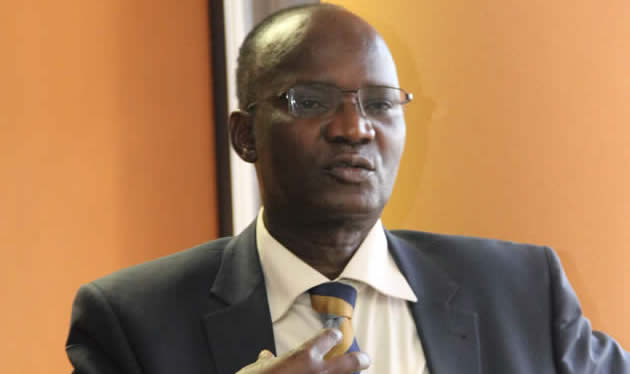Zim: When succession takes the weirdest form

Restraining opinion
The British government, so claims the paper, is restrained by an opinion from its Attorney General which clearly says as matters stand Iran does not represent “a clear and present threat” to international peace. “The UK would be in breach of international law if it facilitated what amounted to a pre-emptive strike on Iran . . . The government has been using this (argument) to push back against the Americans”, adds the paper quoting “a senior Whitehall source”.
The article suggests that the Americans may want to strike at Iran “for the Israelis or in support of them”, adding that Israel “has a less developed strike capability” against Iran. “The key to holding back Israel is Israeli confidence that the US will deal with Iran when the moment is right”, explained “another official” quoted in the Guardian report.
When everything gets spooky
In testing the sourcing of the New York Times report, I came across the following paragraph: “Iran’s progress at Fordo was disclosed by officials familiar with the findings of inspectors from the International Atomic Energy Agency who have been to the site recently as part of their regular visits.
“The officials included some from European governments who have opposed taking military action to slow the Iranian program, arguing that sanctions — with a mix of covert action — are far preferable.”
Then another revealing paragraph of motive: “The report comes at a moment when Iran has emerged as a point of contention in the foreign policy debates surrounding the approaching election. Mr Romney has charged that the president has been “weak” on Iran, and said that Iran’s production of nuclear material had expanded greatly during Mr Obama’s tenure.”
Further in the article, we get to know — obliquely — that the IAEA is yet to table its report to the Security Council, the designated consumer of its investigative and nuclear monitoring endeavours.
The sobering tale of Torah Bora
Beyond all this, the Times indulges the American fancy of invincibility: “Israel does not possess the bunker-busting bombs that would be needed to destroy the facility, though the United States does have one weapon that can do the job: the ‘massive ordnance penetrator’ that just entered the American arsenal”. You cannot resist a mirthful smirk against such wanton boast when you recall how the Torah Bora Mountains proved more lasting, more powerful, than than this massive “ordnance penetrator”!
To this day, the mountains still stand, reluctant to betray their armed denizens by way of the Talibans and God-knows who-else by way of bin Laden’s vengeful ghost. But such self-panegyrics have also been known to come to embarrassing anti-climax, ask Israel. Long wont to regarding itself a snugly settled under a cool dome of invincibility, the Iranians spectacularly breached this myth only a week ago.
Using Hamas, their protege living on the margins of Israel, they despatched an unmanned drone that virtually traversed Israel, only to be detected and downed well deep into its mission. You train your “patriot” missile system against Teheran, only to have the weapon lobbed from a village across your border. By a midget, too!
Today, Israel is psychologically ruffled, which is why it is carting its aggression into Africa, to hit hapless Sudan, the supposed scapegoat for Hamas, which lives only next door to it. Read that together with what the French are seeking to do in Mali, all in the name of Ecowas, and you realise the beast is in heat once again.
Killing for sport
Both articles creak from an overweight of the brooding silence of non-attribution. Or of generalised attribution by way of nebulous sources. Singly or both, we have the DNA for a prelude to lethal lies. The “sources” upon which these serious articles are based, are unidentified, unidentifiable, which is what puts both stories well beyond reader interrogation, well beyond responsibility.
It reminds one of Baldwin’s postulate which made journalism analogous to harlotry: too much power, too little responsibility. You are struck by the level of levity in respect of matters that spell out the destiny of a people, a country. “As flies to wanton boys are we to the gods/they kill us for their sport”, Shakespeare would have said.
The Times attempts at scantily dressed legitimacy by associating its lofty and deadly claims against Iran first with the IAEA and then with Europeans, both of them bodies quite able to represent themselves on such an important subject matter. In the case of the IAEA, the US — through the NYT — is seeking both to jump the gun and to steal and stoke non-existent thunder.
All this rings familiar, with our minds racing back to 2001, racing back to the ill-fated Iraq and its late dictator leader, Saddam Hussein. Through such spooky propaganda and lies, a country was destroyed, prostrated; many lives were lost. As before, diplomacy is about to ride on deception, about to authorise an unjust war, unjust aggression, with the media already in the mood to yodel.
Mathematical punters
And the reason? Well, just above this ominous article in the NYT is a headline one which reads: “Obama Campaign Endgame: Grunt Work and Cold Math”. The backdrop is the less than 12 days bearing down on electoral America, a backdrop that has seen politicians make way to mathematical technicians, their nimble fingers pounding on keyboards, all to overcome the riddle of the undecided voter who might sway this or that way, or more fearfully an undecided voter who might decide to keep away from civic responsibilities.
The campaign has not succeeded in providing pointers to a decisive Obama lead, which implies Romney has done quite well, the president quite badly. The final is tight, anxious and quite unpredictable. A single vote might easily tilt the scales, either way. Obama is on the edge, which is what raises the risk of his just getting foolish, all to excite the phlegmatic voter, all to grab voter attention. Indeed, the beast is in heat once more! Iran, the Third World, beware!
So far, yet so near
Forget that America and her elections might seem so far away from little Zimbabwe. America is so far yet so near. We are under her gaze. But we also have customers who are accosting her, seeking her lewd attention. The Prime Minister has entered an arrangement with Obama and his Democrats, an arrangement in which the electioneering skills and resources of Democrats shall be brought to bear on Zimbabwean politics. Our ballot is going to be heavily Americanised this time around, which is why the battle shall be between Zanu-PF, the US and Europe.
An Obama win has a direct bearing on Tsvangirai’s electoral effort here. The MDC-T plan of action envisages American technical inputs, including training and the operationalisation of a shadow, IT-based tally system. About this, let little be said for now. Suffice it to tell Zanu-PF that indeed Tsvangirai and his party are dead at work, furiously preparing for elections in March. Their timeline is available.
The humour that was lost
But all this should not deny us time for laughter. I notice the local Press completely missed the loaded humour and sarcasm behind part of President Mugabe’s address this Monday. Turning to quantitative, as opposed to qualitative, methodology in the reckoning of constitutional matters extrapolated from results of the outreach programme, the President stood firmly on the quantitative, with a lot to back him on that.
After all, the notion of outreach is itself inherently quantitative, is it not? Why fan out to consult communities in their national vastness if the viable methodology is one that makes such consultative reach superfluous? You just take a few men and women of quality as did America, lock them in a room and get them to emerge from it with the book of rules. It is less expensive, less time wasting.
 But also why repeat the mantra of “people-driven” constitution-making if in the end the people are superfluous, if people’s power gets usurped, their will overthrown by a few select men and women of “quality”, whatever that means? I cannot think of a worse coup, coup more deserving of a deep fret than Chinamasa and Gumbo’s combined mild propositions for which the response has been ungovernably uproarious! Both the approach and the punchline for it invalidated arguments for the so-called qualitative approach.
But also why repeat the mantra of “people-driven” constitution-making if in the end the people are superfluous, if people’s power gets usurped, their will overthrown by a few select men and women of “quality”, whatever that means? I cannot think of a worse coup, coup more deserving of a deep fret than Chinamasa and Gumbo’s combined mild propositions for which the response has been ungovernably uproarious! Both the approach and the punchline for it invalidated arguments for the so-called qualitative approach.
When a quality jab goes unread
But that was not where the President’s humour lay. How does the methodology of quality become relevant to evaluating a vote and a winner, began the mentally agile President. If we are to adopt the qualitative approach and relate it to the 2008 elections, where would that leave matters?
“In the first round, vaTsvangirai secured a 47 percent lead, against my own 43 percent. Where would matters lie if considerations of quality were to come in?” In the sweeping laughter that followed, the clever, savage jab on Tsvangirai was lost. The President’s real message lay in the quality of the vote, and the quality of the winner as prospective presidential material! Tsvangirai gaily took the jab, its unread massive sting paralysing his standing. The joke was on him.
The limits of vanity
Talking about quality, what is Mwonzora on and on about? You get a sense that his role as a party spokesman, Copac co-chair and an MP facing an uncertain future, coupled with gratuitous cheers from the private media, is beginning to enter into his head. He is becoming vain, even challenging his personal “god” to a wrestling match. The President was very kind to him and chose to gently nudge him back onto the correct line through a feigned chastisement of his colleague Mangwana.
He should be mature enough to heed the warning which was delivered to him wrapped in mirth. The gloves can be off. He should ask sekuru vangu, the Constitutional Minister Matinenga, ask what happened to him when, on the day of the Second Stakeholders’ Conference he tried to be the redeemer of the condemned, when he tried to strike a blow for MDC-N.
Or when he questioned, albeit feebly, orders from the principals to take charge of the until — now Copac — driven process. The stakes are high and the time for pranks of little boys is over.
Which way the draft?
It is interesting Mwonzora feigned resisting an Executive takeover of the process at the Second Stakeholders’ Conference. In reality he complied, dutifully too! He gave way. Matinenga, on the instruction of the Principals, effectively took over, which is why both Mangwana and Mwonzora had to be invited into the programme.
This is why the thank-you to both men was valedictory. Indeed, this was the correct thing to do. How else could it be done without making the student the examiner? And you notice the aftermath of the examination process will be handled by Minister Matinenga, not Copac chairpersons.
What is more, when the final document is ready for taking to Parliament, Minister Matinenga who administers the Referendums Act will prepare the
document for tabling to Parliament by the Prime Minister — himself a principal — in his capacity as the leader of Government business in Parliament, the one who takes Government business to Parliament, is he not? Thereafter the document goes to the people by way of a referendum. Once adopted by the people, the Attorney General and Minister Chinamasa, as the chairman of Government legal committee, will get down to adjusting our secondary laws for compliance with the new constitution. I don’t know why the media seems lost on such a straightforward matter.
When South Africa was ignored
Quite appropriately Minister Matinenga cannot but take the finished product to the Principals who assigned him the task in the first place. And the finished product is simply the report of proceedings and issues raised at the Second Stakeholders’ Conference. What the Principals will do with the product will be decided the same way matters that come before them every Monday they meet gets decided, well away from the madding Copac chairs whose shelf-life is past, albeit with an empty roar.
Silence could have won them plaudits; noise invites contempt. Such as they are beginning to get now.
Welshman Ncube shall be consulted as a leader of a political party, something which the South African ambassador seems to have problems in grasping. Or accepting.
The process of making a constitution has entered a governmental phase, which is why it is a matter for leaders of Government, which is why it has to be strictly national, with no room for outsiders, including the facilitator who can only come in upon invitation.
This explains why protests from South Africa, whether at the level of its ambassador or the facilitator’s backroom staff, went unnoticed, unheeded.
Only a commission
As a politician, you get a sense that Mwonzora is drifting towards the proverbial folly of caring for his health, while ignoring his life. Copac business could have defined a happy destiny for the chairpersons, both now and in the afterlife of elections. But there is an attendant recklessness which has won them an uninviting prospect, whether as competent technocrats, or as maturing politicians.
They have evinced a reprehensible truculence, evinced a naive loyalty to a programme, forgetting the programmer. Let us raise matters of law and legislative process and procedure, just to measure their wisdom, or lack thereof. We must always keep on the back of our minds that the name “Copac’’ was a misnomer, a grave and reckless one too. There was nothing parliamentary about it.
The better term for it would have been a Constitutional Commission, the same way the 1999-2000 one was. A creature of the Executive and thus one totally accountable to it. The link between Copac and Parliament is a tenuous one, made more tenuous by the fact that Parliament comprises members of the three parties to the GPA, parties that have leaders above them.
 Disembodying Copac
Disembodying Copac
To argue that co-chairs of Copac do not recognise the final executive tier of principals, threatening even to take any document to Parliament, is to imply the chairpersons command Parliament, above and outside the parties which staff it with their members. Or to imply that parliamentarians will act against their parties and their policies.
Much worse, it is to challenge their own membership in those parties, as if they have been put to work by a partnership of a law firm! It gets even more absurd. Nowhere in the GPA, you are told, does it say principals shall decide! This from people who admit they departed from what the people said? This from persons who quote the GPA, nay recognise it, only to repudiate the three hands that brought it about? Pretending the GPA has a disembodied reality?
What books can’t teach Mwonzora
There is a worse, more absurd implication. I have already indicated that Copac, in spite of its name, is not a committee of Parliament. Committees of Parliament are always set up under clear rules and procedures. Now, the chairmen of Copac will be tabling what before which Parliament, assuming there will be such a Parliament to indulge them?
Tabling private members’ bill? Doubly private in the sense of being a bill from the non-executive, and by persons acting outside of their respective political parties!
To be debated by who? Private Members of Parliament, granting that there will be such a body, presumably founded on spontaneous consensual rebellion across parties, across convictions.
And when we have these two adversities, will it not be about time to talk of a coup? Or more politely a constitutional crisis in which all parties, as represented by their principals, are being pelted, are being rejected by their erstwhile members at the instigation of three chairs of their committee! Arguably, Ncube would be the only one spared! And the whole world will hail us as a country of legislative novelties, a complete nonesuch!
For in which other part of the world has a constitutional bill been tabled from outside the Executive, to be considered by “MPs” from outside of their parties? And then to have the result taken to which Government? Presumably to some outside Government, given the emotional involvement expressed western embassy staffs who stalked the whole exercise!
Is this succession politics gone mad? Books, says Francis Bacon, can never teach the use of books! Only society and experience does, Comrade Mwonzora.
Icho!







Comments